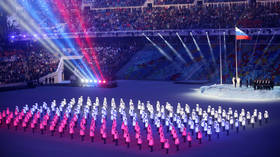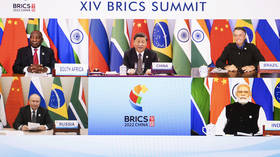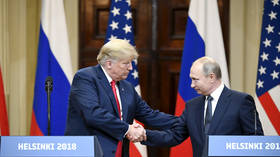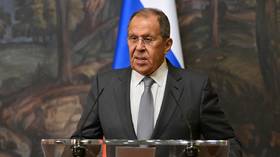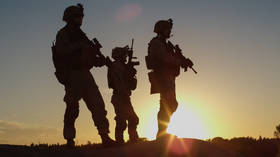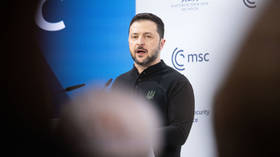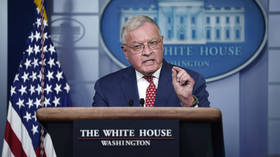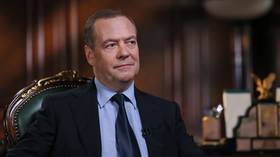Sports minister names ‘key issue’ for Russia
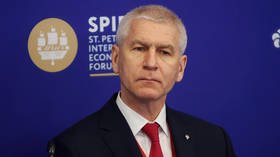
Continued efforts to substitute imports in the area of sporting goods and equipment will be a crucial issue for Russia amid the current sanctions, according to Sports Minister Oleg Matytsin.
Matytsin was speaking ahead of a series of events under the banner of the forum ‘Russia – a Sporting Power’, set to be held from September 28 to 30 across five Russian cities.
“Under the current sanctions pressure, the issue of import substitution is one of the key issues on the agenda of the forum,” Matytsin said in comments shared by TASS on Wednesday.
“The Russian Sports Ministry will support domestic manufacturers of equipment, inventory, and sports nutrition.
“The forum is a large international platform where domestic companies will be able to present their products, talk about the advantages of Russian-made goods and interact with executive authorities, sports federations, Russian national teams, and supporters of a healthy lifestyle,” Matytsin added.
The need for more self-sufficiency in the area of sporting goods has been heightened by the current climate of Western sanctions.
Russian Deputy Prime Minister Dmitry Chernyshenko – a key figure in sport in his homeland – said back in July that the country imports 90% of its sporting equipment, describing it as a “horrendous figure.”
“This suggests that we need to develop the economy, produce our own equipment, and bring our sports goods and technologies to the market,” said the official.
Chernyshenko noted that Russia could continue to look to India and China in this regard, but added: “Technological sovereignty dictates that we should do this in Russia as well.”
Matytsin has consistently stressed that Russia would not turn its back on the global sporting community, despite a long list of federations banning Russian athletes following a recommendation from the International Olympic Committee (IOC).
Matytsin has cautioned, however, that Russia will take steps to ensure its sporting sovereignty.
“Unfortunately, sport has become a means of political influence, it is used as a mechanism for pressure on Russia. In general, this is a blow not only to us, but to everything in world sport, according to the Olympic values,” he said earlier this year.
“Forming proposals for anti-crisis measures to support the sphere of physical culture and sports [in Russia] is our common responsibility.”
Matytsin and others have touted increased sporting cooperation with the BRICS (Brazil, Russia, India, China, South Africa) countries and members of the SCO (Shanghai Cooperation Organization) as a counterweight to Western-led sanctions and bans.
